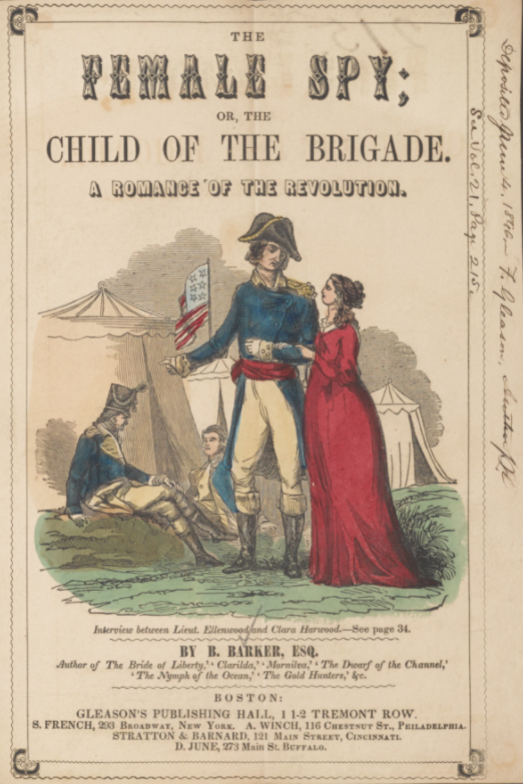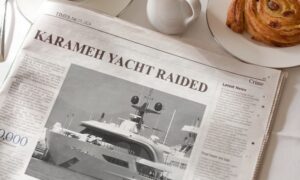Title page copyright application for “The Female Spy,” a romance novel of 1846. Rare Book and Special Collections Division.
The Library’s newest crowdsourcing campaign, American Creativity: Early Copyright Title Pages, is now online and ready for your amusement, education and transcription. It features the great (and not so great) ideas of yesteryear in copyright applications from 1790 to 1870, which recorded the young nation’s attempts to capitalize on the present and transform the future.
It’s the largest By the People crowdsourced transcription campaign so far. Previous campaigns have focused on subjects as varied as Walt Whitman, Susan B. Anthony, Rosa Parks, Civil War soldiers, baseball legend Branch Rickey and centuries of Spanish legal documents. Volunteers can read and transcribe the works or check the work of others, both steps in digitizing vast numbers of archived papers and thus making them more easily available online.

Title copyright page for “My Bondage, My Freedom,” by Frederick Douglass, 1855, six years before the Civil War began. Rare Book and Special Collections Division.
In this project, the 18th- and 19th-century title pages are taken from the Early Copyright Records Collection, which we’ve recently expanded to include over 200 handwritten pre-bound ledgers that were once held by various states. From 1790 through 1870, copyright registration was accomplished by completing a form at the local federal district court, paying a fee, and depositing a printed title page with the court clerk. The Copyright Act of 1870 — the birth of modern copyright law — consolidated all these records. These early records offer a uniquely American sensibility and chronicle an industrious new nation and its intellectual pursuits. Some of the titles will be readily recognized, but many were never published or have been lost to history.
They contain some of almost every sort of intellectual activity: books, sheet music, prints, maps, dramatic compositions, advertising labels and patent drawings. There are novels, histories, plays, religious and educational instruction, music scores, science and mechanical inventions. The handwritten entries made by state court clerks often include fascinating notations, as well as pasted-in content.

“The Frog Who Would A Wooing Go,” copyright title page, 1858. Rare Book and Special Collections Division.
Don’t miss a lively discussion of early American copyright webinar on Thursday, Oct. 7, from 3 to 4:30 p.m. Registration is free. Speakers include John Cole, Historian at the Library of Congress; Zvi Rosen, legal scholar of copyright at the Southern Illinois University School of Law; and George Thuronyi, head of the public Information and education at Copyright Office. The recorded program will be available shortly after the live presentation.
Subscribe to the blog— it’s free! — and the largest library in world history will send cool stories straight to your inbox.

















